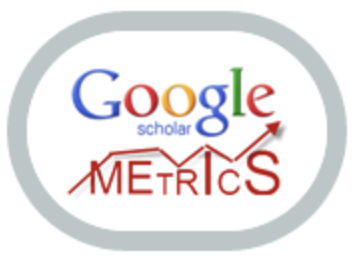Mentoring classes in english language: pedagogical support in remote learning environment
DOI:
https://doi.org/10.29327/256399.8.1-3Keywords:
English language, Autonomy, Mentoring, Remote TeachingAbstract
This article aims to discuss the development of the project Mentoring Practices in English Language: a supportive environment for students of EFL, within the scope of pandemic scenario and the cessation of presential work. The report underlies the work as activities aimed at improving the quality of the undergraduate course and the teacher training process: the interaction and learning space, the use of technological resources, and the approach and use of the target language aimed at the development of the autonomy of the participants. This proposal is theoretically linked to studies developed by Harmer (2007), Bygate (2001), Larsen-Freeman (2001), and others. Data obtained through monitoring, and dialogue with those involved during the meetings point to the importance of the pedagogical support that is provided by the mentoring project, given the existence of gaps and weaknesses in learning, which become evident at the beginning of the educational process in Higher Education.
References
BARDOVI-HARLIG, K.; HARTFORD, B. Learning the rules of academic talk: A longitudinal study of pragmatic change. Studies in Second Language Acquisition. v. 15, n. 3, p. 279-304, 1993.
BYGATE, M. Speaking. In: CARTER, R.; NUNAN, D. (org.). The Cambridge Guide on Teaching English to Speakers of Other Languages. Cambridge: Cambridge University Press, 2001.
CARTER, R. Vocabulary. In: CARTER, R.; NUNAN, D. (org.). The Cambridge Guide on Teaching English to Speakers of Other Languages. Cambridge: Cambridge University Press, 2001.
COUNCIL OF EUROPE. Common European Framework of Reference for Languages (CEFR). [S. l.], 2021. Disponível em: https://www.coe.int/en/web/common-european-framework-reference-languages. Acesso em: 25 de Jan. de 2022.
FREIRE, P. Pedagogia da autonomia: saberes necessários à prática educativa. 29 ed. São Paulo: Paz e Terra, 1996.
HARMER, J. How to teach English. Edinburgh: Longman, 2007.
INSTITUTO PENÍNSULA. Desafios e perspectivas da educação: uma visão dos professores durante a pandemia. 2021. Disponível em: https://www.institutopeninsula.org.br/wp-content/uploads/2021/10/Pulso-Volta-as-Aulas.pdf. Acesso em: 11 de Jan. de 2022.
JAMBOARD. [S. l.]: Google, 2016. Disponível em: https://jamboard.google.com. Acesso em: 25 de Jan. de 2022.
KAHOOT!. [S. l.], 2013. Disponível em: https://kahoot.com. Acesso em: 25 de Jan. de 2022.
LARSEN-FREEMAN, D. Teaching Grammar. In: CELCE-MURCIA, M. (Ed.). Teaching English as a Second or Foreign Language. Boston: Heinle & Heinle, 2001.
MORAN, J. Ensino e aprendizagem inovadores com tecnologias audiovisuais e telemáticas. In: MORAN, J. et al. Novas tecnologias e mediação pedagógica. 6. ed. Campinas: Papirus, 2004.
MORAN, J. Metodologias ativas para uma aprendizagem profunda. In: MORAN, J.; BACICH, L. (org.). Metodologias ativas para uma educação inovadora: uma abordagem teórico-prática. Porto Alegre: Penso, 2018.
PADLET. [S. l.], 2012. Disponível em: https://padlet.com. Acesso em: 25 de Jan. de 2022.
PAIVA, V. L. M. Autonomia e complexidade. In: LEFFA, V. J. (Ed.). Linguagem & Ensino. Pelotas, v. 9, n 1, 2006.
SANTOS, J. C.; BARCELOS, A. M. “Não sei de onde vem essa timidez, talvez um medo de parecer ridículo”: um estudo sobre a timidez e a produção oral de alunos de inglês. Horizontes de Linguística Aplicada. Ano 17, n. 2, 2018.
SELINKER, L.; DOUGLAS, D. Wrestling with 'context' in interlanguage theory. Applied Linguistics. v. 6, n. 2, p. 190-204, 1985.
Downloads
Published
How to Cite
Issue
Section
License
Copyright (c) 2021 Antonio Genário Pinheiro dos Santos; Giovana Silva Santos; Leandro de Souza Silva

This work is licensed under a Creative Commons Attribution 4.0 International License.
Authors who publish in this journal agree to the following terms:
a) Authors retain copyright and grant the journal the right of first publication. The articles are simultaneously licensed under the Creative Commons Attribution 4.0 International Public License (CC BY 4.0) which allows the sharing of the work with acknowledgment of its authorship and initial publication in this journal.
b) Discursividades journal offers immediate free access to its content, following the principle that making scientific knowledge available to the public free of charge provides greater global democratization of knowledge.






